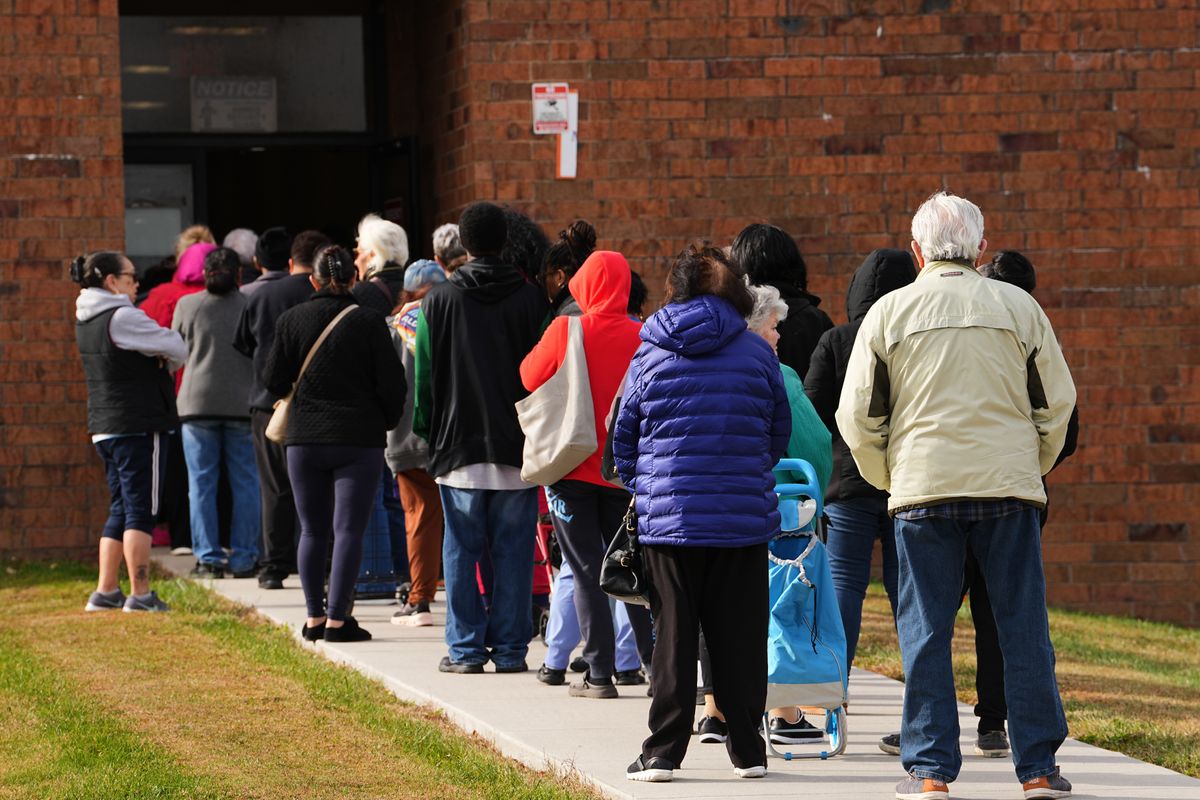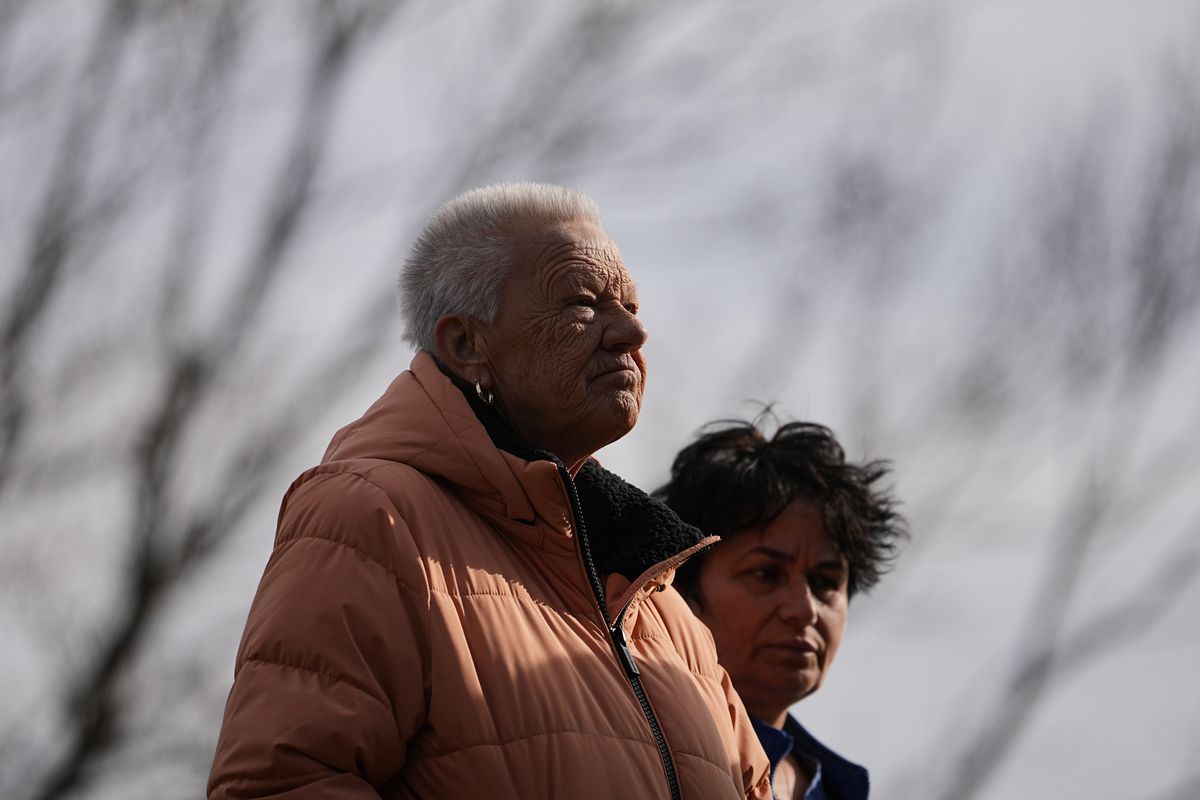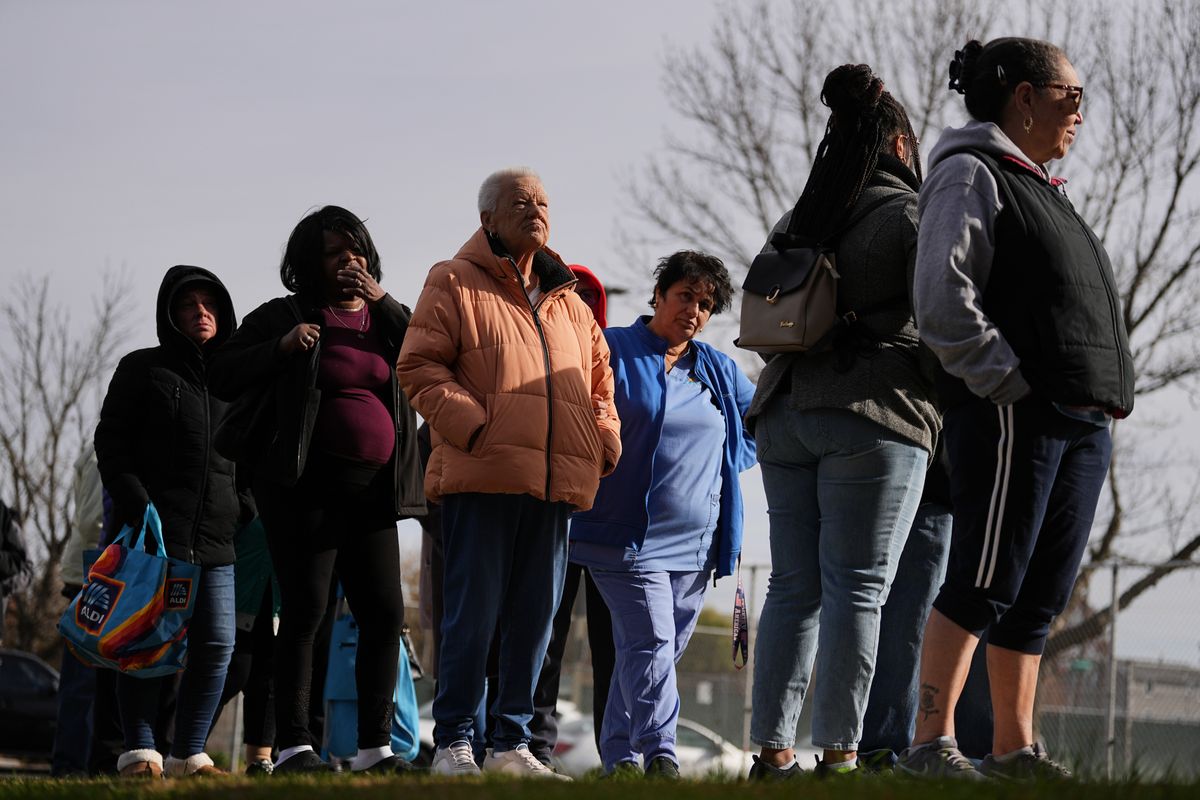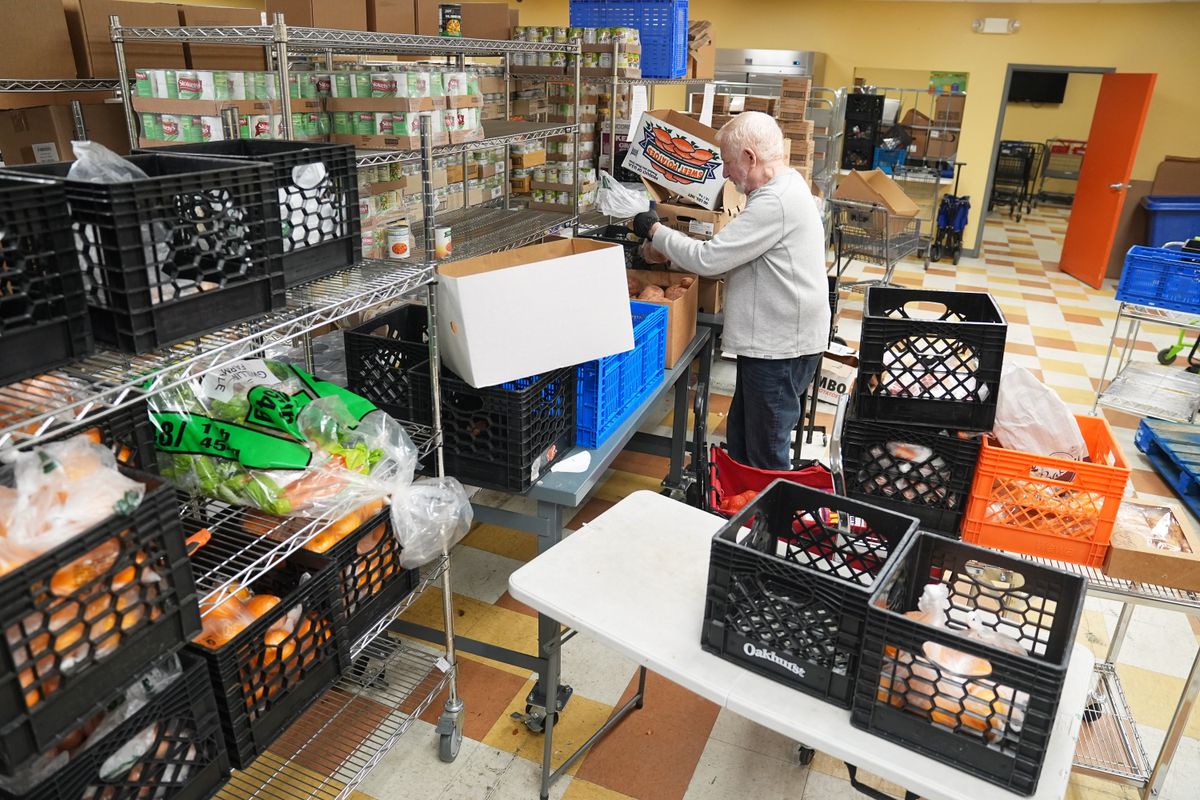BOSTON (AP) — President Donald Trump ’s administration asked a federal appeals court Friday to block a judge’s order that it distribute November’s full monthly SNAP food benefits amid a U.S. government shutdown, even as at least some states said they were moving quickly to get the money to people.
The judge gave the Republican administration until Friday to make the payments through the Supplemental Nutrition Assistance Program. But the administration asked the appeals court to suspend any court orders requiring it to spend more money than is available in a contingency fund, and instead allow it to continue with planned partial SNAP payments for the month.
The court filing came even as the U.S. Department of Agriculture said in a memo to states that it’s working to make funds available Friday for full monthly SNAP benefits.
Officials in California, Kansas, New Jersey, Pennsylvania and Wisconsin confirmed that some SNAP recipients already have been issued their full November payments.
“Food benefits are now beginning to flow back to California families,” Democratic Gov. Gavin Newsom said in a statement.
In Wisconsin, more than $104 million of monthly food benefits became available at midnight on electronic cards for about 337,000 households, a spokesperson for Democratic Gov. Tony Evers said. Kansas said 86,000 households were receiving nearly $32 million in SNAP payments on Friday.
Uncertainty remains for many SNAP recipients
The court wrangling prolonged weeks of uncertainty for the food program that serves about 1 in 8 Americans, mostly with lower incomes.
An individual can receive a monthly maximum food benefit of nearly $300 and a family of four up to nearly $1,000, although many receive less than that under a formula that takes into consideration their income.
For some SNAP participants, it remained unclear when they would receive their benefits.
Jasmen Youngbey of Newark, New Jersey, waited in line Friday at a food pantry in the state’s largest city. As a single mom attending college, Youngbey said she relies on SNAP to help feed her 7-month-old and 4-year-old sons. But she said her account balance was at $0.
“Not everybody has cash to pull out and say, ‘OK, I’m going to go and get this,’ especially with the cost of food right now,” she said.
Later Friday, Youngbey said, she received her monthly SNAP benefits.
Tihinna Franklin, a school bus guard who was waiting in the same line outside the United Community Corporation food pantry, said her SNAP account balance was at 9 cents and she was down to three items in her freezer. She typically relies on the roughly $290 a month in SNAP benefits to help feed her grandchildren.
“If I don’t get it, I won’t be eating,” she said. “My money I get paid for, that goes to the bills, rent, electricity, personal items. That is not fair to us as mothers and caregivers.”
The legal battle over SNAP takes another twist
Because of the federal government shutdown, the Trump administration originally had said SNAP benefits would not be available in November. However, two judges ruled last week that the administration could not skip November’s benefits entirely because of the shutdown. One of those judges was U.S. District Judge John J. McConnell Jr., who ordered the full payments Thursday.
In both cases, the judges ordered the government to use one emergency reserve fund containing more than $4.6 billion to pay for SNAP for November but gave it leeway to tap other money to make the full payments, which cost between $8.5 billion and $9 billion each month.
On Monday, the administration said it would not use additional money, saying it was up to Congress to appropriate the funds for the program and that the other money was needed to shore up other child hunger programs.
Thursday’s federal court order rejected the Trump administration’s decision to cover only 65% of the maximum monthly benefit, a decision that could have left some recipients getting nothing for this month.
In its court filing Friday, Trump’s administration contended that Thursday’s directive to fund full SNAP benefits runs afoul of the U.S. Constitution.
“This unprecedented injunction makes a mockery of the separation of powers. Courts hold neither the power to appropriate nor the power to spend,” the U.S. Department of Justice wrote in its request to the court.
In response, attorneys for the cities and nonprofits challenging Trump’s administration said the government has plenty of available money and the court should “not allow them to further delay getting vital food assistance to individuals and families who need it now.”
States are taking different approaches to food aid
Some states said they stood ready to distribute SNAP money as quickly as possible.
Democratic Massachusetts Gov. Maura Healey said Friday that SNAP recipients should receive their full November payments as soon as Saturday. In New York, SNAP participants should began having access to their full monthly benefits by Sunday, Democratic Gov. Kathy Hochul said.
Connecticut Gov. Ned Lamont, a Democrat, said all SNAP recipients will have their full November benefits within the next several days.
Meanwhile, officials in North Carolina said they distributed partial SNAP payments Friday and full benefits could be available as soon as this weekend. Officials in Illinois, Kentucky, Louisiana and North Dakota also said they distributed partial November payments.
In Missouri, the Department of Social Services said it was awaiting further federal guidance. Meanwhile, St. Louis Mayor Cara Spencer urged people to donate to a newly created local fund for emergency food assistance
Amid the federal uncertainty, Delaware’s Democratic Gov. Matt Meyer said the state used its own funds Friday to provide the first of what could be a weekly relief payment to SNAP recipients.
___
Lieb reported from Jefferson City, Missouri; Bauer from Madison, Wisconsin; and Catalini from Newark, New Jersey. Associated Press writers Sara Cline in Baton Rouge, Louisiana; Jack Dura in Bismarck, North Dakota; Susan Haigh in Norwich, Connecticut; Heather Hollingsworth in Mission, Kansas; Anthony Izaguirre in New York; Mingson Lau in Claymont, Delaware; John O’Connor, in Springfield, Illinois; Gary D. Robertson in Raleigh, North Carolina; and Tassanee Vejpongsa in Philadelphia contributed to this report.
By DAVID A. LIEB, MICHAEL CASEY, SCOTT BAUER and MIKE CATALINI
Associated Press





